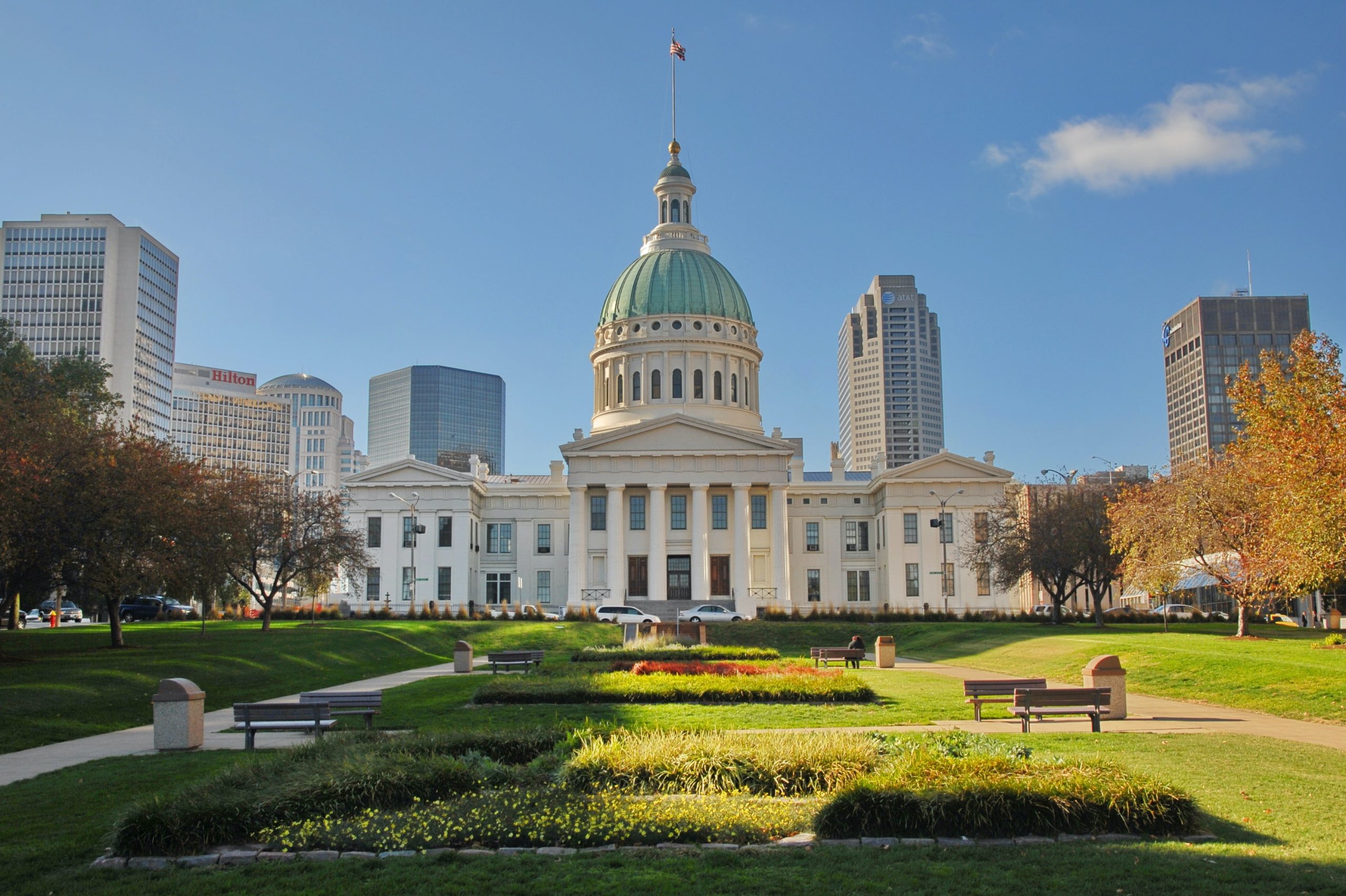Filing Bankruptcy Alone? Be Certain of Your Next Steps and What to Expect
If you find yourself in a challenging financial situation, you might be considering filing for bankruptcy. This process can be daunting, and one of the questions you might ask is, “Can I file for bankruptcy without hiring a lawyer?” This blog will guide you through the process of filing for bankruptcy in Wisconsin on your own, also known as “pro se” filing. However, keep in mind that while it is legally possible to file for bankruptcy without an attorney, it comes with significant risks, and hiring a bankruptcy attorney is strongly recommended.
Should I Be Filing Bankruptcy Alone? Why You Need a Bankruptcy Attorney
Before we delve into the details of filing for bankruptcy without a lawyer, let’s explore why having a bankruptcy attorney is crucial:
- Qualification for Chapter 7: An experienced attorney can help you determine if you qualify for Chapter 7 bankruptcy when you might have thought you couldn’t.
- Legal Representation in Meetings with Creditors: By law, only a licensed attorney can provide legal representation in meetings with creditors. Having an attorney by your side in these meetings can be invaluable.
- Proper Filing: Filing for Chapter 7 improperly may force you into Chapter 13, where you’ll have to repay a portion of your unsecured debts. An attorney can help you avoid this situation.
- Asset Protection: Filing incorrectly might lead to the loss of valuable assets that you don’t know how to protect. A bankruptcy attorney can help safeguard your assets.
- Form Completion: The bankruptcy process involves a multitude of forms and paperwork. It’s easy to make errors or omissions without professional guidance.
- Meeting Deadlines: Missing a deadline in the bankruptcy process could lead to delays or even dismissal of your case. A bankruptcy attorney ensures you meet all necessary deadlines.
It’s important to note that hiring a “Bankruptcy Petition Preparer” (BPP) as an alternative to an attorney is not advisable. BPPs are not qualified to provide legal advice, and their services often result in complications and even the dismissal of bankruptcy cases.
Filing Bankruptcy Alone without a Lawyer: Important Considerations
If you decide to proceed without an attorney, it’s crucial to understand the responsibilities and risks involved. Bankruptcy is a highly technical legal process, and missteps can have long-term financial and legal consequences. Here are some steps to consider:
- Educate Yourself: Start by learning the basics of bankruptcy law. You can do this by reading about Bankruptcy Basics, watching the Bankruptcy Basic Video, and checking if you are eligible to file.
- Complete the Necessary Forms and Schedules: You will need to fill out various forms and schedules to initiate your bankruptcy case. These forms can be found on the Wisconsin bankruptcy court website.
- Frequently Asked Questions (FAQ): Review the Frequently Asked Questions on the official Wisconsin bankruptcy court website to address common queries.
- Steps to a Successful Bankruptcy: Follow the steps outlined by the Western District of Wisconsin for filing bankruptcy without a lawyer.
Filing Bankruptcy Alone for Free in Wisconsin
One of the concerns when filing for bankruptcy is the cost of legal representation. However, you can file Chapter 7 bankruptcy in Wisconsin without hiring a lawyer. Here’s a step-by-step guide to help you through the process:
Filing Bankruptcy Alone: Collect Your Wisconsin Bankruptcy Documents
Before starting the bankruptcy process, gather essential financial documents, including:
- The last two years of your tax returns.
- The last 60 days of paycheck stubs.
- Bank statements from the past 6-12 months.
- A recent credit report listing your creditors.
- Letters and statements from debt collectors and collection agencies.
Filing Bankruptcy Alone: Take Credit Counseling
Prior to filing for Chapter 7, you must complete a credit counseling course from a state-approved provider. This course covers financial topics and your debt relief options. Ensure you complete this requirement within 180 days before filing your bankruptcy petition.
Filing Bankruptcy Alone: Complete the Bankruptcy Forms
Most of the bankruptcy forms you need are standardized and available for free online. Take your time to accurately and honestly fill out these forms. If you’re uncertain about any aspect, consult online resources or seek legal advice.
Filing Bankruptcy Alone: Get Your Filing Fee
Filing for Chapter 7 bankruptcy requires a fee of $338. While it’s advisable to wait until you can pay the fee in full, you can request to pay it in up to four installments if you need to file quickly. If you earn less than 150% of the federal poverty guidelines for Wisconsin, you may be eligible for a fee waiver.
Filing Bankruptcy Alone: Print Your Bankruptcy Forms
Print all your bankruptcy forms on regular white letter-sized paper (8.5×11 inches) in black ink. Ensure you have copies of all documents for your records.
Filing Bankruptcy Alone: File Your Forms With the Wisconsin Bankruptcy Court
Pro se filers need to physically submit their paperwork to the appropriate courthouse. You can find information on where to file on the official court website. Remember to bring identification and all necessary forms with you.
Filing Bankruptcy Alone: Mail Documents to Your Trustee
After filing, the bankruptcy court will assign a trustee to oversee your case. You will need to provide certain documents to the trustee, including bank statements and tax returns.
Filing Bankruptcy Alone: Take a Debtor Education Course
After filing, you must complete a debtor education course within 60 days of the meeting of creditors. This course focuses on financial management and preparing you for a fresh start.
Filing Bankruptcy Alone: Attend Your 341 Meeting
The 341 meeting, also known as the meeting of creditors, is a crucial step in the bankruptcy process. Your trustee will ask you questions about your financial situation. While creditors can attend, it’s rare that they do. Be prepared and bring any required documents.
Filing Bankruptcy Alone: Dealing with Your Car
Bankruptcy offers options for handling your car, whether you own it outright, are still paying off a loan, or are leasing it. Your attorney or online resources can guide you through the best approach based on your circumstances.
Wisconsin Bankruptcy Means Test to Know if Filing Bankruptcy Alone
The means test determines whether you qualify for Chapter 7 bankruptcy or if you must file under Chapter 13. It compares your household income to the median income for Wisconsin. If your income is below the median, you pass the means test. If not, further calculations are necessary.
Data on Median Income Levels for Wisconsin to Know if Filing Bankruptcy Alone
- Household Size: 1
- Monthly Income: $5,262.17
- Annual Income: $63,146.00
- Household Size: 2
- Monthly Income: $6,821.17
- Annual Income: $81,854.00
- Household Size: 3
- Monthly Income: $8,271.75
- Annual Income: $99,261.00
- Household Size: 4
- Monthly Income: $9,870.08
- Annual Income: $118,441.00
These figures are essential for determining your eligibility.
Wisconsin Fee Waiver Eligibility to Know if Filing Bankruptcy Alone
If your income is less than 150% of the federal poverty level for Wisconsin, you may qualify for a fee waiver. Here are some guidelines:
- Household Size: 1
- State Poverty Level: $1,132.50
- Fee Waiver Limit (150% PL): $1,698.75
- Household Size: 2
- State Poverty Level: $1,525.83
- Fee Waiver Limit (150% PL): $2,288.75
- And so on for different household sizes.
Ensure you check your eligibility for a fee waiver based on your household size and income.
Wisconsin Bankruptcy Forms if Filing Bankruptcy Alone
Bankruptcy forms are essential for initiating your case. You will use standardized federal forms along with specific forms designated by the Wisconsin bankruptcy court for your district. You can find the relevant forms on the Wisconsin bankruptcy court website.
Eastern District of Wisconsin Requirements if Filing Bankruptcy Alone
The Eastern District of Wisconsin covers the easternmost counties in the state and has locations in Milwaukee, Green Bay, and Oshkosh. You can file your documents in the Milwaukee office or mail them there.
Western District of Wisconsin Requirements if Filing Bankruptcy Alone
The Western District of Wisconsin covers the western half of the state, with offices in Madison and Eau Claire. Ensure you understand the specific requirements for your district, including accepted payment methods for filing fees.
Wisconsin Bankruptcy Exemptions to Know if Filing Bankruptcy Alone
Exemptions play a crucial role in protecting your assets during bankruptcy. Wisconsin allows you to choose between federal and state bankruptcy exemptions, but you cannot mix and match. Understanding these exemptions can help you safeguard your property.
Some key exemptions in Wisconsin include:
- Homestead Exemption: Protects up to $75,000 of equity in your home if you file individually (compared to the federal exemption of $25,150).
- Vehicle Exemption: Protects your car if its value is less than $4,000.
- Wildcard Exemption: Covers up to $13,400 in household goods like clothing and furniture.
Remember that certain payments, such as child support, veteran’s benefits, and workers’ compensation, are fully protected under both federal and state exemptions.
Wisconsin Bankruptcy Lawyer Cost
While hiring a bankruptcy attorney in Wisconsin can be expensive, it can ultimately save you money and ensure a smoother process. Attorneys typically charge a flat fee ranging from $1,250 to $1,665 for Chapter 7 cases. It’s important to research and find a law firm that you feel comfortable with, considering both cost and expertise.
Wisconsin Legal Aid Organizations
If you cannot afford an attorney but need assistance with your bankruptcy case, Wisconsin has legal aid organizations that provide free or low-cost legal services. Here are some organizations to consider:
- Legal Action of Wisconsin, Inc.
- Phone: (414) 278-7777
- Address: 230 West Wells Street, Room 800, Milwaukee, WI 53203-1866
- Wisconsin Judicare, Inc.
- Phone: (715) 842-1681
- Address: 401 Fifth Street, Suite 200, P.O. Box 6100, Wausau, WI 55403
Wisconsin Bankruptcy Judges and Trustees
In Wisconsin, various judges and trustees oversee bankruptcy cases in different districts. Here are some of the judges and trustees you might encounter:
Wisconsin Bankruptcy Judges
Eastern District of Wisconsin
- Hon. Susan V. Kelley
- Hon. G. Michael Halfenger
- Hon. Beth E. Hanan
- Hon. Brett H. Ludwig
Western District of Wisconsin
- Hon. Catherine J. Furay
- Hon. Brett H. Ludwig
- Hon. Thomas M. Lynch
- Hon. William V. Altenberger
Wisconsin Trustees
Wisconsin has several bankruptcy trustees who play a key role in administering bankruptcy cases. Here are some of them:
- Michael F. Dubis
- Contact: mdubis@tds.net
- Phone: (262) 534-6950
- Virginia E. George
- Contact: Virginia@vegeorgelaw.com
- Phone: (414) 332-3211
- Andrew N. Herbach
- Contact: aherbach@trustee7.com
- Phone: (414) 272-0761
- And more…
Please note that this information is subject to change, so it’s essential to verify details and requirements with the appropriate court or trustee when proceeding with your bankruptcy case.
Contact Lawyers at Dahlberg Law Group for Expert Assistance
Filing for bankruptcy can be a complex and challenging process, especially when considering the legal intricacies involved. While it’s possible to file for bankruptcy without an attorney, it’s strongly recommended that you seek professional legal guidance to ensure your rights are protected and that you navigate the process effectively.
At Dahlberg Law Group, our experienced bankruptcy attorneys are here to help you understand your options, guide you through the bankruptcy process, and provide the expert advice you need to make informed decisions. Don’t hesitate to contact Attorney Steven Eichstaedt for a free consultation to discuss your unique financial situation and explore the best path forward.
Filing for bankruptcy is a significant decision, and it’s crucial to be well-informed about your rights and options. Whether you choose to proceed pro se or with an attorney, make sure you have the resources and knowledge to make the best choices for your financial future.
For detailed information on the bankruptcy process, visit the official website of the U.S. Bankruptcy Court for the Western District of Wisconsin. Additionally, you can find forms and resources for bankruptcy filings on the Wisconsin Court System’s official website.


